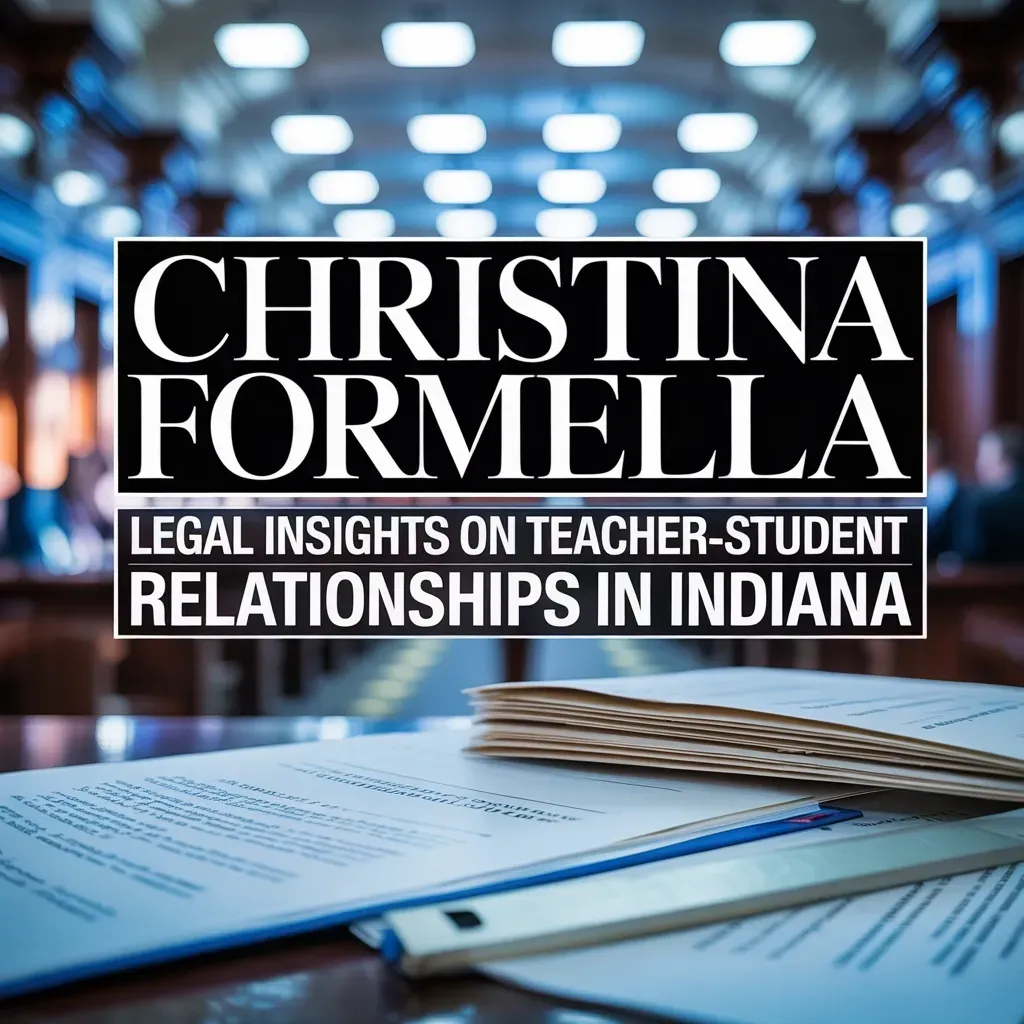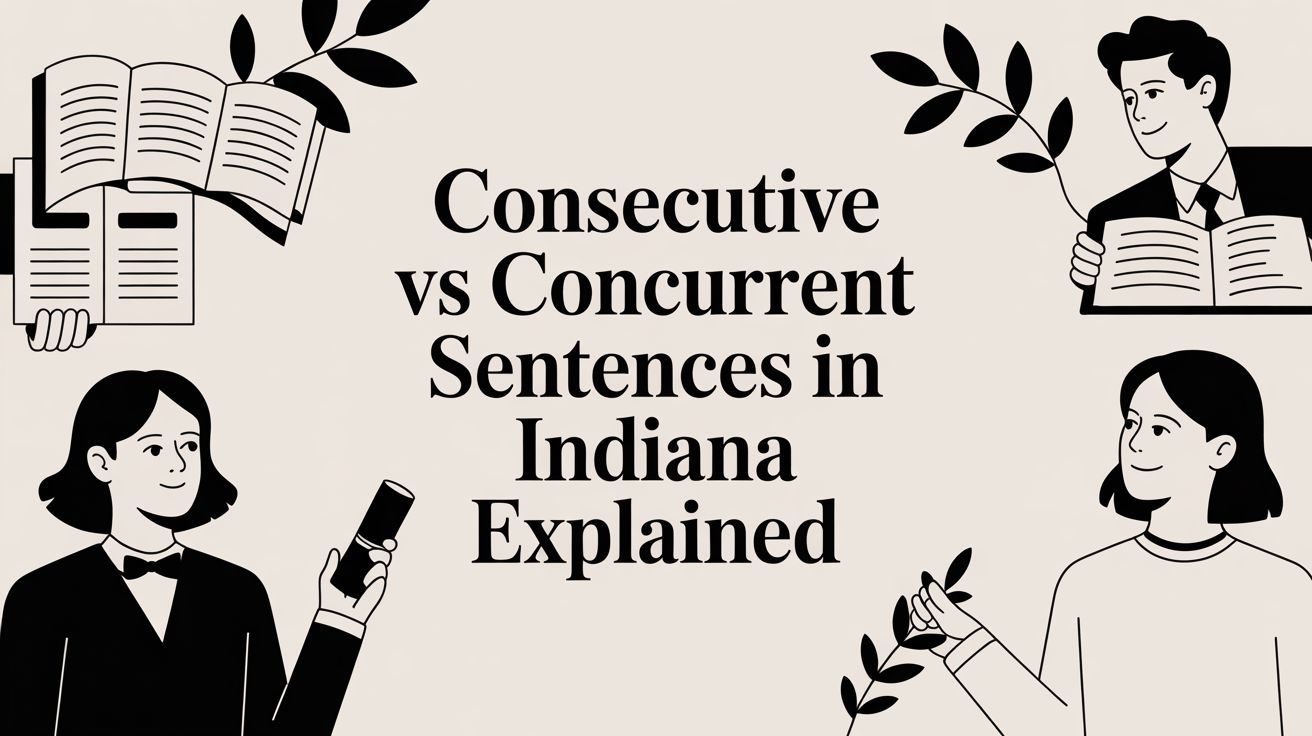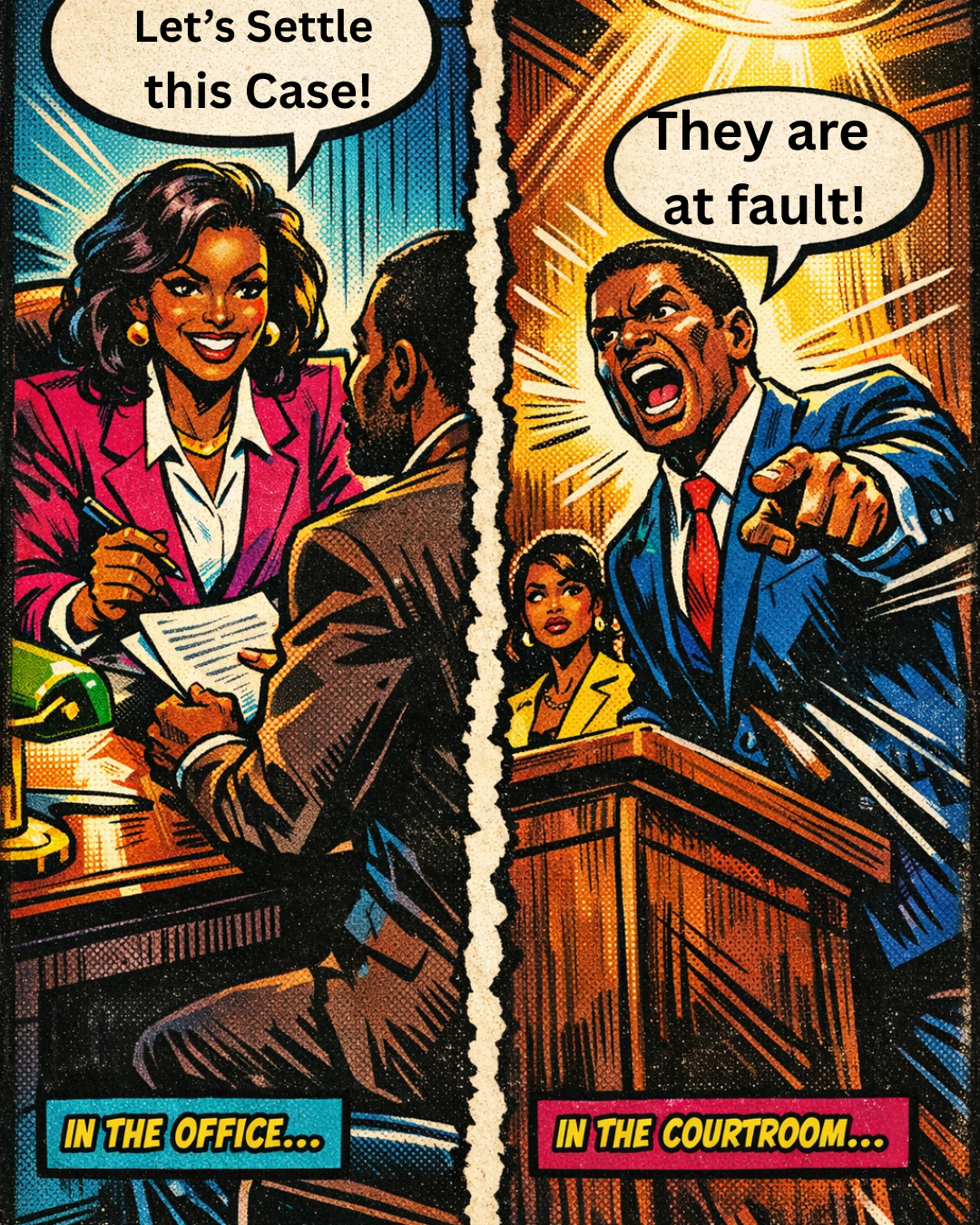Teacher Christina Formella Arrested for Sex with Student
Legal Insights on Teacher-Student Relationships in Indiana

Recent Arrest Sheds Light on Serious Legal Consequences
The recent arrest of Christina Formella, a teacher charged with multiple counts of sexual abuse involving a 15-year-old student, has once again brought the serious issue of teacher-student relationships into the spotlight. While this particular case is unfolding in Illinois, similar cases occur in Indiana with alarming frequency. At the Law Office of Mark Nicholson, we've seen firsthand how these cases can destroy careers, families, and lives.
Let's break down the legal implications of such cases in Indiana, what charges individuals might face, and what you need to know if you or someone you know is facing similar allegations.
The Formella Case: A Cautionary Tale
The allegations against Formella are extensive and disturbing. She faces a staggering 50+ charges, including counts of criminal sexual assault, counts of aggravated criminal sexual abuse, counts of indecent solicitation of a child, and counts of grooming. Prosecutors allege she engaged in sexual activity with a 15-year-old student approximately 50 times, both at school and at her home, following months of inappropriate text messages that established a pattern of grooming.
The case came to light when the student's mother discovered text messages on her son's phone and immediately reported the situation to local police. This parental vigilance highlights the critical role families play in protecting minors from predatory behavior.
Indiana's Stance on Teacher-Student Relationships
In Indiana, the law takes an exceptionally firm stance against sexual relationships between teachers and students—even if the student has reached Indiana's age of consent (16).
Under Indiana Code § 35-42-4-7, a person who has a professional relationship with a school (such as a teacher, coach, or counselor) commits child seduction, a Level 5 felony, by engaging in sexual conduct with a student when:
- The student is at least 16 years old but less than 18 years old
- The person is at least 18 years old
- The person is in a position of trust or authority over the child
If the student is younger than 16, the charges become even more severe, potentially including child molestation (IC 35-42-4-3), a Level 1 to Level 4 felony depending on circumstances.
Severe Penalties Await Those Convicted
In Indiana, a conviction for child seduction as a Level 5 felony carries:
- One to six years in prison (advisory sentence of three years)
- Fines up to $10,000
- Registration as a sex offender, potentially for life
For more serious charges involving younger students, penalties escalate dramatically:
- Level 1 felony: 20-40 years imprisonment (advisory sentence of 30 years)
- Level 3 felony: 3-16 years imprisonment (advisory sentence of 9 years)
- Level 4 felony: 2-12 years imprisonment (advisory sentence of 6 years)
Beyond criminal penalties, those convicted face:
- Permanent loss of teaching license
- Inability to work with minors in any capacity
- Difficulty finding employment in virtually any field
- Lifelong damage to reputation and relationships
- Civil liability that could result in significant financial judgments
The Investigation Process: What to Expect
When allegations of inappropriate teacher-student relationships emerge in Indiana, the investigation typically follows a predictable pattern:
- Initial Report: Often comes from a parent, student, school staff member, or anonymous tip
- Administrative Action: Immediate placement of the teacher on administrative leave
- Multi-Agency Investigation: Collaboration between school officials, Department of Child Services (DCS), and law enforcement
- Evidence Collection: Seizure and forensic examination of electronic devices, interviews with the alleged victim, witnesses, and the accused
- Charging Decision: Prosecutor determines whether to file formal charges based on evidence
Throughout this process, statements made to investigators, messages on electronic devices, and witness testimony become critical pieces of evidence that can make or break a case.
Legal Defenses in Teacher-Student Relationship Cases
If you're facing allegations related to inappropriate relationships with students, several potential defenses may apply depending on the specific facts of your case:
- False Accusations: Sometimes allegations stem from misunderstandings, student manipulation, or retribution for poor grades or discipline
- Lack of Evidence: The prosecution must prove every element of the offense beyond a reasonable doubt
- Improper Investigation: Evidence obtained through improper searches or interrogations may be excluded
- Consent is NOT a Defense: It's crucial to understand that in Indiana, a student's consent is irrelevant when the adult is in a position of authority
Text Messages: The Modern Smoking Gun
In the Formella case, text messages played a pivotal role in both the discovery of the alleged relationship and in building the prosecution's case. This follows a pattern we see repeatedly in similar cases.
In today's digital age, electronic evidence has become the cornerstone of most teacher-student relationship prosecutions. Text messages, social media communications, and email exchanges create a permanent record that can:
- Establish patterns of grooming
- Document the nature of the relationship
- Prove knowledge of wrongdoing
- Demonstrate intent
- Corroborate victim testimony
For those accused, the digital trail often becomes their undoing. That single text message you thought was innocent can be interpreted very differently when presented to a jury alongside hundreds of others showing a pattern of inappropriate communication.
The Impact of Pre-Trial Release Conditions
In the Formella case, the court granted pre-trial release with specific conditions, including a ban from school property and prohibition from contact with minors. These conditions reflect typical pre-trial restrictions in Indiana for similar cases.
In Indiana, courts commonly impose the following pre-trial conditions in teacher-student relationship cases:
- No-contact orders protecting the alleged victim
- Prohibition from contacting any minors
- GPS monitoring
- Surrender of passport
- Restrictions on internet usage
- Regular check-ins with pre-trial services
- Drug and alcohol testing
Violation of these conditions can result in immediate revocation of pre-trial release and detention until trial.
Why Aggressive Legal Representation Matters
When facing charges related to inappropriate teacher-student relationships, the stakes couldn't be higher. Your freedom, career, reputation, and future are all on the line. This is not the time for a passive defense.
At the Law Office of Mark Nicholson, we understand that these cases require an aggressive approach that includes:
- Immediate Intervention: Getting involved before charges are filed when possible
- Independent Investigation: Not simply accepting the prosecution's version of events
- Scrutiny of Evidence: Challenging the admissibility and interpretation of text messages, social media, and other evidence
- Expert Witnesses: Bringing in professionals who can testify about adolescent psychology, false memories, or digital forensics
- Strategic Negotiations: Working toward the best possible outcome whether that's dismissal, reduced charges, or favorable plea arrangements
Six Critical Steps If You're Facing Allegations
If you find yourself accused of inappropriate conduct with a student, take these immediate steps:
- Exercise Your Right to Remain Silent: Do not speak to school administrators, investigators, or anyone else about the allegations without an attorney present
- Do Not Contact the Alleged Victim: Any attempt at contact can be used against you and may violate court orders
- Preserve Evidence: Save all communications, documents, and evidence that might help your case
- Stay Off Social Media: Anything you post can be used against you
- Seek Mental Health Support: These allegations take a tremendous psychological toll
- Contact an Experienced Defense Attorney: Specifically one with experience in sex crimes and teacher-student relationship cases
The Long Road to Resolution
Cases involving teacher-student relationships typically take 12-18 months to resolve in Indiana's court system. During this time, the accused often experiences:
- Loss of employment
- Financial strain
- Social isolation
- Intense media scrutiny
- Mental health challenges
This extended timeline makes it all the more critical to have strong legal representation from the beginning to help navigate both the legal process and the personal challenges that accompany it.
How Our Law Office Approaches These Cases
At the Law Office of Mark Nicholson, we understand that allegations don't equal guilt. Our approach to defending teacher-student relationship cases includes:
- Thorough examination of all evidence
- Challenging improper police procedures
- Consulting with expert witnesses
- Preparing for both negotiation and trial
- Providing compassionate support throughout the process
- Fighting aggressively for your rights at every stage
We've helped many clients facing serious allegations protect their rights and achieve favorable outcomes through strategic, aggressive defense strategies.
When Everything Is at Stake
The Christina Formella case serves as a stark reminder of the life-altering consequences that can follow allegations of inappropriate teacher-student relationships. In Indiana, the legal system takes these cases extremely seriously, and the penalties can be devastating.
If you or someone you know is facing similar allegations, don't wait to get help. The decisions you make in the first hours and days after allegations surface can dramatically impact the outcome of your case.
For aggressive, experienced representation in teacher-student relationship cases or other serious criminal charges, contact the Law Office of Mark Nicholson immediately at 317-219-3402.






















